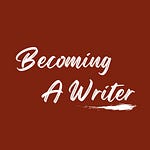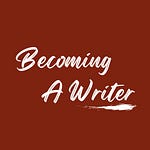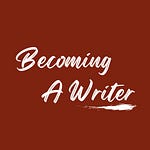Show Notes -
Episode Summary:
In the first episode of 2025 and the thirty-third conversation of the Becoming A Writer podcast, I share five of the ten writing and creative lessons I learnt in 2024. From finding the best time to write to understanding when to quit and pivot, this episode is filled with personal insights and actionable advice for writers and creatives. The conversation is divided into two parts to keep it digestible, with the second half coming in the next episode.
Key Points Discussed:
Finding Your Creative Time – Identifying the best time for deep work and structuring the day accordingly.
Trying Something New – Overcoming fear and embracing new creative ventures, like starting a podcast.
The Goldilocks Principle – Avoiding burnout by finding the right balance in work and creativity.
Knowing When to Quit and Pivot – Understanding Seth Godin’s The Dip and learning when to move on from unproductive efforts.
Reading Books vs. Social Media Scrolling – Reassessing social media consumption and prioritizing reading for deeper engagement and enrichment.
Takeaways:
Writers should schedule their writing sessions first before filling in the rest of the day’s responsibilities.
Fear of the unknown often exaggerates difficulties; trying new things can lead to unexpected enjoyment and growth.
Overworking leads to burnout, and it’s essential to find a sustainable pace.
Recognizing when a project/place is no longer serving you and having the courage to pivot can lead to better opportunities.
Social media consumption drains creative energy, while reading books enriches the mind and soul.
Resources Mentioned:
The Dip by Seth Godin
Medium vs. Substack – A personal reflection on the transition from Medium to Substack as a better platform for long-form content.
Transcript -
Podcast Intro -
Welcome to Becoming A Writer podcast, where writing inspiration is served fresh in 20 minutes or less, every 2nd and 4th Saturday.
I am Rubina Gauri Gomes, and together we'll learn how to explore, experiment with, and express our writer selves.
If this speaks to your writing journey, give the podcast a listen! If you enjoy it, I'd love for you to leave a review so others can find it, too. Don’t forget to share your suggestions or questions through the form in the show notes, and let’s grow this community together!
You can find more conversations like this and download your free Writer's Mental Toolbox PDF at rubinagomes.substack.com.
Now, grab a cup of your favourite drink, and let's have a quick chat.
Episode -
Well, hello, my writer friends! Rubina here.
Happy New Year! I know I am a month late in wishing you and in posting the new episode of this podcast. I'll explain why this was the case later in our conversation.
For now, let's start our thirty-third conversation, the first one of 2025. Today, I'll share five of the ten Writing and Creative lessons I learnt last year.
I didn't want the conversation to become too long, so I have divided it into two parts.
Even then, this is a long one, so get as cosy as you can.
Lesson 1 - Find your creative time and then plan your day accordingly.
Having experimented for over 8 years to figure out the best writing time for me, I concluded that the best time I can get any writing done, distraction-free, is early in the morning. And I mean, super early in the morning.
My sweet spot turns out to be waking up at 4:30, freshening up, being at my desk by 5:30, and working for a couple of hours.
Now, to ensure that it happens regularly, I realised that I had to change my previous night's routine. Again, through experimentation, I know I need at least 7 hours of good sleep to function like a decent human being the next day. This means the night before, I need to be in bed by 8:30. and fall asleep by 9:15-9:30. Therefore, I have to get done with the day and its responsibilities by 8 p.m.
What we writers usually do is let the day tell us what's in store, and then we try to fit in our writing time in whatever low-quality and low-quantity time is left over. But I suggest instead that you book a time for your writing session (daily, if possible) and then fill in the day with whatever responsibilities and errands you have.
Doing so may feel selfish, but let me tell you - when you are done with your creative work for the day, you will be less cranky and more engaged with the rest of the day. That's a win-win situation.
Lesson 2 - Try something new. It's not that scary.
Ever so often, try something new in your creative life. For me, it was starting this podcast.
I had the thought of starting a podcast for quite some time, but fear of the unknown made me hesitate. Plus, my previous experience with trying to make YouTube videos (and failing) tainted my current perception. But I had this strong urge to start a podcast, so after careful planning and execution, I launched Becoming A Writer in March of last year.
Guess what happened next? I realised that I was worried for no reason. Instead, I was actually enjoying recording my conversations with you. It was a learning curve but a fun one.
That is when I learnt that it always seems scary to try something new. But once you give it a shot, you realise it wasn't as bad as you thought it would be.
Lesson 3 - Aim for Goldilocks.
The Goldilocks principle refers to something being "just right" - neither too much nor too little.
For the past 5 years, I was doing too much on my creative journey. I had too many projects going on at the same time. I was staying true to the ideal Capricorn nature and being a workaholic. I would fill up every minute of the day with either working or thinking (or, should I say, worrying) about work. I was driving myself mad and over the edge of the burnout cliff. It was a health scare (a minor one, don't worry) that made me realise the toxic routine I had enslaved myself into. Slowly and steadily, I used the past couple of years to pull myself out of that situation. Which eventually led me to find my Goldilocks zone.
I work best when I focus on one thing at a time, whether it's an essay, a scene, or a podcast episode. Even with my multiple projects, I focus on one until it's done before moving on to the next.
In a world that promotes and wears multitasking and overworking as a badge of honour, it's rebellious to take it one thing, one day at a time. But that is exactly what we should do to reach our goals and fulfil our dreams safely and sanely.
Lesson 4 - Know when to quit and pivot.
In Seth Godin's The Dip, he explains three types of dips we face when working on a project we want to achieve success in.
The first is called the Dip. This is a temporary setback or slump we face after the initial enthusiasm for trying something new wears off. It’s the slog between starting and mastering something. The Dip often acts as a filter, separating those who are committed from those who aren’t.
The second is called the Cul-de-Sac. This is a dead-end. No matter how much effort you put in, you will not see significant progress or results. You will be in a stagnant situation where your energy, resources, and dreams are rotting away.
The third is called the Cliff. This is a situation in which everything seems fine or enjoyable in the short term but is unsustainable and could lead to a sharp fall or failure in the future.
Out of these three, you should stick around and go through the first one - the Dip. But when it comes to the Cul-de-Sac or the Cliff, it's time to quit.
For me, continuing to post my essays on Medium was a Cul-de-Sac situation. Even though I saw Medium's decline in late 2023, I was still hopeful. But by the third month of 2024, I knew there was no saving Medium.
This Cul-de-Sac situation of Medium was turning into a Cliff situation for me where it had started to affect my mental health. Now, that's definitely a red flag.
On the other hand, by the beginning of the last quarter of 2024, I noticed the potential growth of my podcast. Plus, I was enjoying the process as well. It made sense to re-direct my time, energy and skills where I was seeing signs of life.
So, I quit Medium and pivoted my focus to Substack and my podcast.
Lesson 5 - Reading books vs Social Media scrolling.
Before I was a writer, I was a reader. Reading novels is how I entertain myself and escape the not-so-fun parts of my life. Our relationship was growing strong with each passing year. My book and I became friends for life, not wanting to spend a moment away from each other.
Well, that was until social media apps came into our lives. With her enticing siren's call, social media started to lure me towards the quick rushes of cheap entertainment and escape. There was a time when every free second of my day was used to read another chapter of my current read. Now, it went to scroll Instagram.
Somehow, last year, my trance broke, and I realised how sick I was (mentally and emotionally). While reading books would enrich my life, scrolling social media would drain all life out of me.
After some harsh and truthful examination, I came to the conclusion that we all know subconsciously: consumption of social media is not healthy. But reading books is. If I compare their ROI, reading books has, in many cases, delivered me 10x returns, while social media has always been on the negative side of the scale.
One of my goals for the new year is to rekindle my relationship with reading and avoid social media (both for consumption and creation) as much as possible.
Phew! That was a lot for now.
What are your thoughts on this? Is there any lesson here that you resonated with? I’d love to hear from you in the comments on Substack and YouTube!
Well, that's it for today. Next time we meet, we'll discuss the other five Writing and Creative lessons I learnt last year.
Until then, keep writing, my friend.
Podcast Outro -
Thank you for catching up with me today.
I hope you found some inspiration to help you grow a deeper relationship with your writer self.
If you enjoyed today’s episode, don’t forget to follow the podcast and drop a review! You can also share any suggestions or questions with me through the form in the show notes.
You can find more conversations like this and download your free Writer's Mental Toolbox PDF at rubinagomes.substack.com.
That’s a wrap for now! See you later!
📚 My non-fiction book for writers -
Soul Writer vs. Social Writer - Find Out Which One Are You?, Why Is It Important, and Finding Your Sweet Spot.
Amazon US | Amazon UK | Amazon India
🏡 My homes on the internet -
Spotify | Apple Podcast | Amazon Music
YouTube | YouTube Music | Substack (podcast)
A Rubina’s Bojra Production
Directed By: Rubina Gauri Gomes
Produced By: Rubina Gauri Gomes, Books She Has Read, And Life Lessons She Has Learnt
Written By: Rubina Gauri Gomes
Host & Voice Talent: Rubina Gauri Gomes
Music by: Happy Lazy Loop by Serge Quadrado (At Adobe Stock)
Audio-Visual Edited By: Rubina Gauri Gomes
Marketed By: Rubina Gauri Gomes
Fueled By: Coffee ☕
Made With Love, For Fellow Writers And Creatives.🤍












